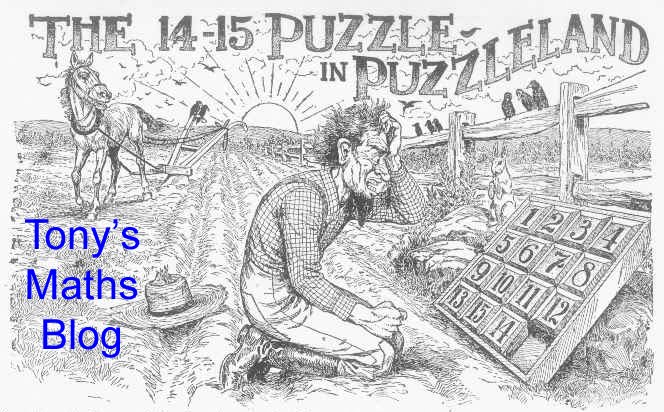The Big Internet MathOff is now taking place. Sixteen mathematicians are competing in a knock-out tournament to present the most interesting piece of mathematics. With the final two matches of the first round now taking place, there has already been a wealth of fascinating mathematics presented. Christian Lawson-Perfect deserves huge thanks for creating this wonderful showcase of exciting maths.
But not only are the contestants' pitches fascinating. There is also interesting maths involved in the background.
First, Each match runs for 48 hours. As a contestant, my most pressing question today is whether I will win my first round match against Jo Morgan, in which case I will need to work urgently on my pitch for round 2. So the question is, how soon can I extrapolate from the early votes to be reasonably sure of the outcome?
I am sure that this has been studied in the context of political elections. But this is harder because the electorate is everybody with access to the internet - several hundred million people (though not all will actually vote).
Now, when I first looked at the score ten minutes after the match started, I was leading by 2 votes to 1, but I think that was a bit too early to be confident of the result. As I write this, four hours into the match, Jo is leading by 58 votes to 29, and my share of the vote has consistently been around 30% for some time. Although time differences may mean that America has yet to vote, my intuition is that I can safely abandon my pitch for round 2 and turn to other things like writing blog posts.
I've already had to find my answer to my second problem. Each contestant has to provide a different piece of fun mathematics for each round so we all had to submit four topics before the tournament started. It's unlikely that each set of four topics were all equally good. So what order do you choose for your topics? Do you save your best one for the final? In that case, you might not get to the final and your best idea is wasted. Or do you use your best ideas in the early rounds, to improve your chances of progress, but risk putting your weakest idea forward in the final?
There may be a similarity with World Cup penalty shoot-outs. With five penalties to take, it's clear that a team should select their best five penalty takers. But in which order should they take the penalties? One suggestion is that you should save your best penalty-takers for the end, when the pressure will be greatest. But that could mean that your team has lost 5-3 and your best taker hasn't taken one of the penalties. The great Ally McCoist, commenting on last night's shoot-out between Russia and Croatia, argued for putting your best takers first, guaranteeing that at least they will take penalties. I'm not convinced that's a sound argument, though if you score your early penalties then the pressure on your opponents will increase.
So what did I do for the MathOff? Did I save my best idea for the final, or bring it out for the first round? Well, there is a further complication. I have no idea how to judge which of my topics would win most votes in an internet poll. Ranking them in order would have been pure guesswork. So, shamefully, I didn't use any game theory or simulation to decide the order of my pitches - I just entered them in the order in which I thought of them. Which may be as good a strategy as any!
